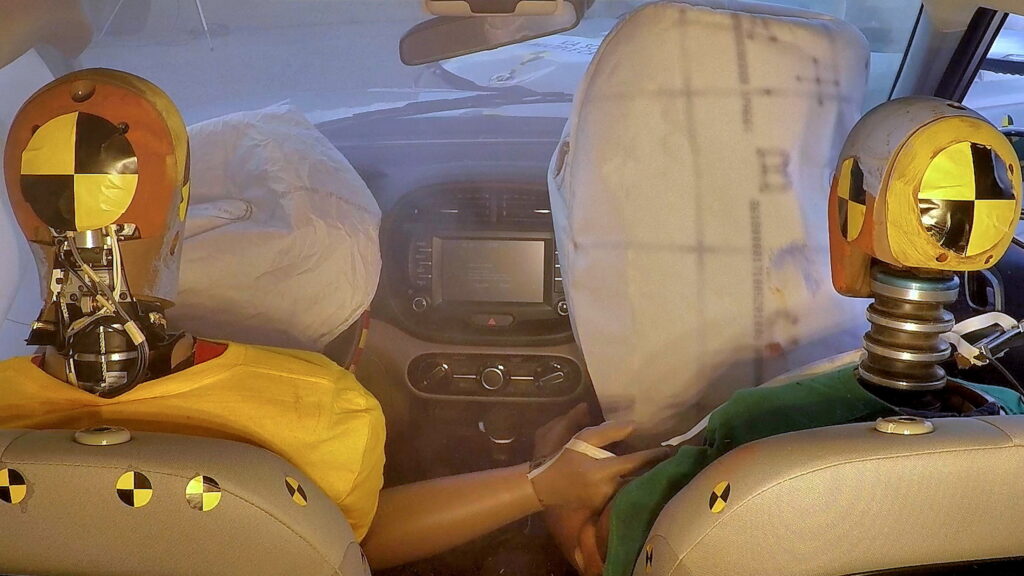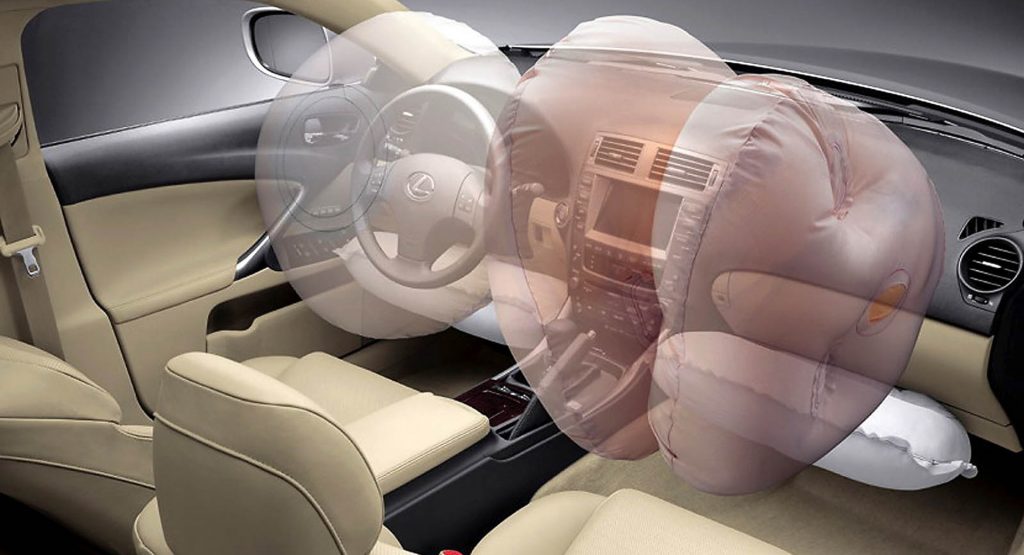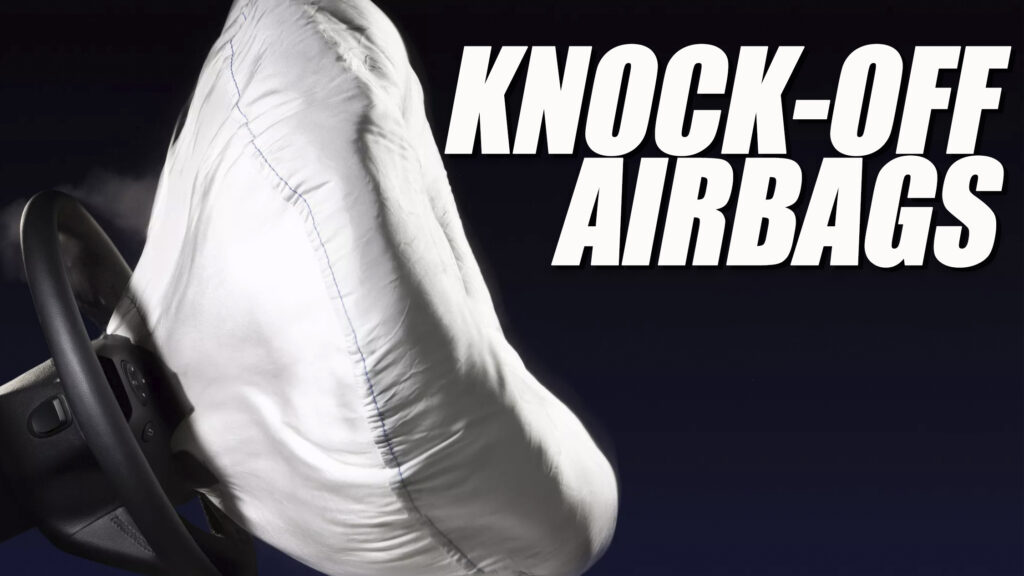- Manufacturers and regulators raise concerns over counterfeit airbags being installed in cars.
- Five deaths or severe injuries from knock-off airbags were reported in the U.S. last year.
- Fake airbags are becoming harder to identify, with some nearly indistinguishable from the real thing.
In a cruel twist of irony, airbags—the very devices that are designed to save lives—are once again coming under increased scrutiny due to a fresh spate of injuries and deaths. Perhaps even more concerning is that the latest reports of deadly airbags aren’t from Takata, the now-defunct airbag supplier that was to blame for large-scale recalls from multiple manufacturers.
No, the latest concerns are centered around knock-off airbags that are being passed on to unsuspecting customers.
Read: Your New Toyota Grand Highlander And Lexus TX Might Shoot Their Airbag Out The Window
The scariest element of these counterfeit airbags is that, due to their concealed nature, you may not even know if your car has one installed — especially if it was fitted by a previous owner. Adding extra jeopardy is that the installer may have been unaware, too, with many of these imitation airbags bearing the same markings as their OEM counterparts.
According to a report by The Wall Street Journal, in the past year alone, there have been five recorded cases of people who have been killed or seriously injured by these knock-off airbags. The Automotive Anti-Counterfeiting Council, an industry-led group that includes General Motors, Ford Motor, and Volkswagen, finds this number alarmingly high, indicating that more fake airbags are likely being installed. Additionally, these are only the reported cases.
The allure of fake airbags is simple: cost. Whereas an authentic airbag module can be north of $1,000, fakes will often retail for as little as $100–$350. Airbags are highly specialized devices. They use explosives to quickly inflate a bag of air in a split second, so when incorrectly assembled, they can be deadly.
Some counterfeit parts have been traced back to China, while others may have been assembled in the US. In some cases, the counterfeiters will order the front plate for an airbag module, which will likely look original and bear the manufacturer’s markings. But while it may look new from the outside, the innards may have been assembled from salvaged junkyard parts.

And it’s not just fly-by-night operators looking to save a penny that should be concerned. While independent workshops are most susceptible to willingly or unknowingly installing fake airbags, carmakers are warning their dealers to look out for fakes when satisfying their recall campaigns, too.
While arrests have been made and tens of thousands of counterfeit items seized in recent years, it’s becoming increasingly difficult for regulators to track down all the fakes. Due to the size of the parts, counterfeiters are using small packages to evade detection. It’s also becoming increasingly difficult to spot the fakes, with some requiring a trained eye to be identified.
Read: ZF’s New Airbag Design Could Change Steering Wheels Forever
eBay has become a major source of these counterfeit products, while automakers have continually asked the e-commerce site to stop selling these potentially dangerous and fraudulent devices. Other websites, including Amazon and Alibaba, have policies that ban the sale of airbags on their platforms. An eBay spokesperson told WSJ that it only allows pre-approved sellers who follow federal and state laws to sell airbags and that violators can face permanent suspension.
A lawsuit filed in May alleges that a fake airbag installed in a Chevrolet Malibu killed an unsuspecting mother of two when it “exploded like a grenade.” The driver, Destiny Byassee, rear-ended another car at 30 mph before hitting a pole, but according to a lawyer representing the family, the driver should have walked away.
The Malibu had been owned by Enterprise Rent-a-Car and was sold to DriveTrime, a used car seller. General Motors, assisting in the case, traced the airbag components back to Jilin, a Chinese manufacturer of various products that GM says isn’t an authorized supplier for replacement airbag parts.
It’s alleged that the airbag was replaced at some point in 2022 by Jumbo Automotive, a repair shop in Hollywood, Fla. Enterprise claims it wasn’t part of the repair, while DriveTime said that it doesn’t buy vehicles that have been involved in disclosed accidents where the airbags have been triggered and that it was unaware of the earlier crash.





